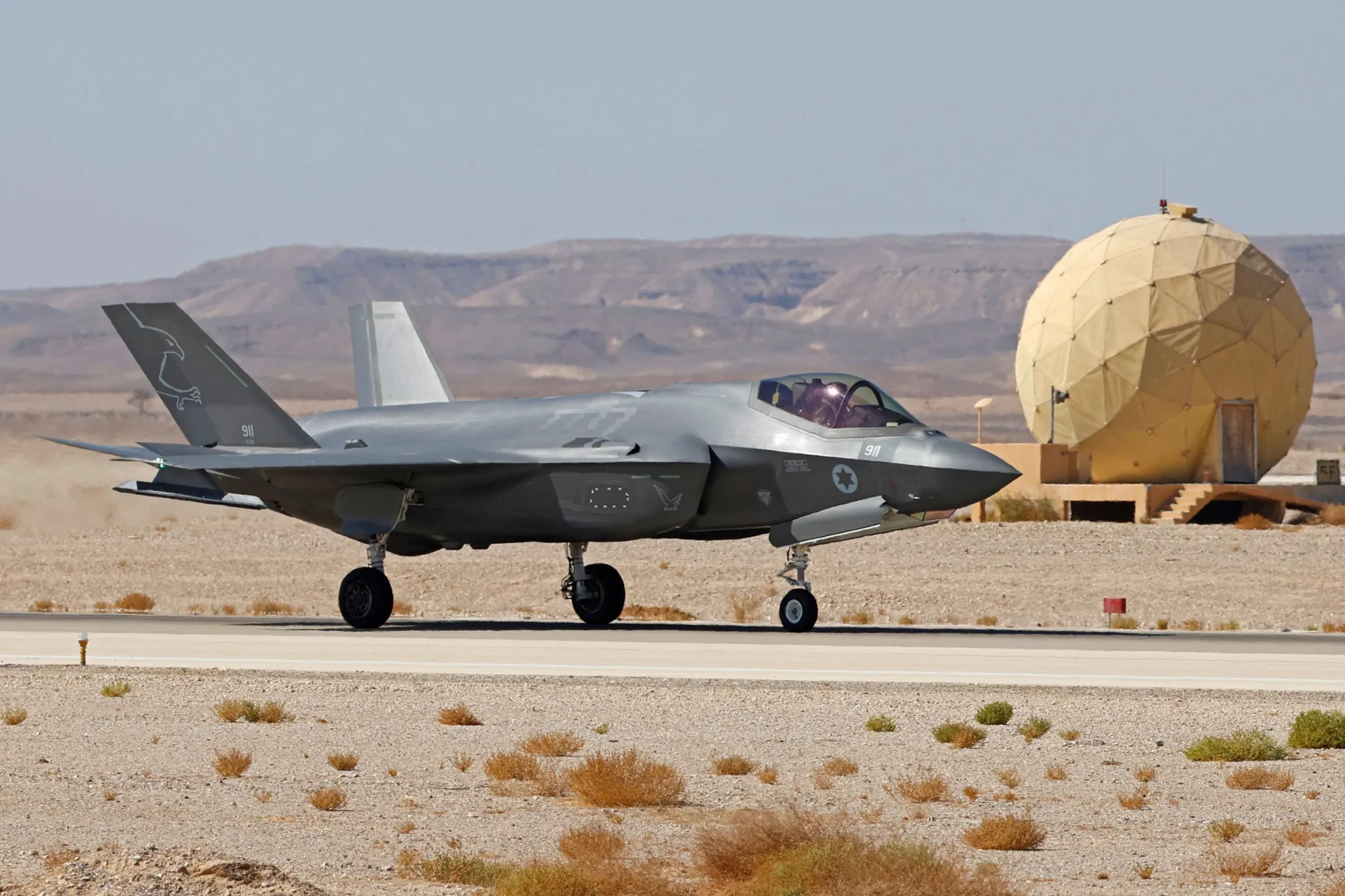
Iran’s massive missile and drone attack on Israel, which began in the late hours of April 13, pushed the conflict between the two countries into a potentially explosive new phase. For decades, Israel and Iran have fought a shadow war, attacking each other mostly quietly and in Iran’s case often by proxy. That changed with Iran’s retaliatory response to an April 1 attack it blamed on Israel in which several Iranian officers were killed in Syria. Israel’s response to the missile and drone assault could determine whether the next stage is all-out war.
Israel’s forces have a vast technological edge over Iran’s. That’s partly down to military and financial support from the US, which has long sought to ensure Israel’s advantage as part of its commitment to the Jewish state’s security. For example Israel is the only state in the Middle East so far that’s bought Lockheed Martin Corp.’s F-35 fighter jet — the costliest weapons system ever.
Israel is also widely believed to have nuclear weapons, though it has never acknowledged that capability.
By contrast, sanctions and political isolation have hobbled Iran’s access to foreign military technology, driving it to develop its own weapons including the missiles and drones it fired on Saturday. Iran’s combat aircraft are mostly older models inherited from before the country’s 1979 revolution. It’s agreed to buy Russian jets but it’s not clear that they’ve been delivered.
Though at a technological disadvantage, Iran’s military is thought to have a significant stockpile of the ballistic and cruise missiles and cheap unmanned aerial vehicles, or drones, that it deployed against Israel April 13.
As Iran learned, penetrating Israel’s substantial air defenses is a challenge. There’s getting past Israeli Air Force fighters. Then there are Israel’s Arrow and David’s Sling air-defense systems, which together with US and other allied forces in the region intercepted the “vast majority” of the more than 200 drones and missiles Iran fired, according to Israel’s military.
Tehran’s arsenal also includes surface-to-air missiles, including Russia’s S-300 air defense system, but these aren’t as battle tested as Israel’s defenses. Iran accidentally shot down a Ukrainian passenger aircraft in 2020 amid heightened tensions with the US using a Russian-made Tor air-defense missile.
Both Israel and Iran have cyberwar capabilities. More than a decade ago, malware known as Stuxnet compromised operations at an Iranian nuclear enrichment facility in what’s suspected to have been a US and Israeli operation. Iran is capable of “a range of cyber operations, from information operations to destructive attacks against government and commercial networks worldwide,” according to an assessment by the US Defense Intelligence Agency released April 11. Cyberattacks launched by Iran include a hack that sought to cripple computers and water flow for two Israeli districts, according to the Council on Foreign Relations.
Who are their allies?
Iran’s most important allies are the Shiite militias in Lebanon, Iraq, Syria and Yemen that it supports with money, weapons and training. The Lebanese militia Hezbollah, which launched rockets on Israeli targets during Iran’s April 13 assault on Israel, would be positioned to play the most significant role in an all-out war. It’s fought repeated battles with Israel and has been regularly firing missiles, mortars and rockets into northern Israel since war broke out in October between Israel and the Iran-backed militant Palestinian group Hamas. Hezbollah’s arsenal contains more than 70,000 rockets and missiles, including long-range and precision-guided missiles, according to Israeli intelligence.
Yemen’s Iran-backed Houthi rebels would likely be eager to play a part in a larger war. Since the start of the Israel-Hamas war, they have attempted to strike Israel with missles and drones and have disrupted traffic in the Red Sea by repeatedly attacking ships there.
Iran’s only state ally in the Middle East is Syria. The government of President Bashar al-Assad would be unlikely to be of assistance given that it’s still struggling to gain control over the entire country following the outbreak of civil war in 2011.
Iran has good relations with Russia, though its war in Ukraine would likely limit its ability to help, and with China, which has bought Iranian oil though it remains sanctioned by the US and allies.
Israel has the US and the UK on its side. The US has already expedited shipments of munitions to Israel, to help it fight Hamas. Among the US forces in the Middle East region are two Navy destroyers that moved to the eastern Mediterranean in early April, according to a Navy official: the USS Carney and the USS Arleigh Burke, both capable of air defense.
Early in the Israel-Hamas war, the Pentagon moved its newest aircraft carrier, the Gerald R. Ford, and its battle group into the eastern Mediterranean. It has since returned home. The Dwight D. Eisenhower carrier strike group is on its way from operations against the Houthis. Each bristles with F/A-18E/F Super Hornet fighter jets and other advanced aircraft. In addition, 2,000 Marines were put on heightened alert for potential mobilization.
The UK Defense Ministry deployed Royal Air Force jets to help intercept the Iranian attack on Israel.
How might Arab states react?
An Israel-Iran war would put many of the countries in the region in a difficult position. Four Arab countries made peace deals with Israel in 2020 via the so-called Abraham Accords. Their distrust of Iran was part of what brought them together. But it’s unlikely any Arab state would stand with Israel in a confrontation against a fellow Muslim country, let alone one as powerful as Iran.
Iran and Saudi Arabia last year restored diplomatic relations after a seven-year freeze. Saudi Arabia has been exploring the possibility of normalizing ties with Israel as part of a broader deal in which it hopes to attain US security guarantees, and it would likely try to avoid become embroiled in the conflict.

